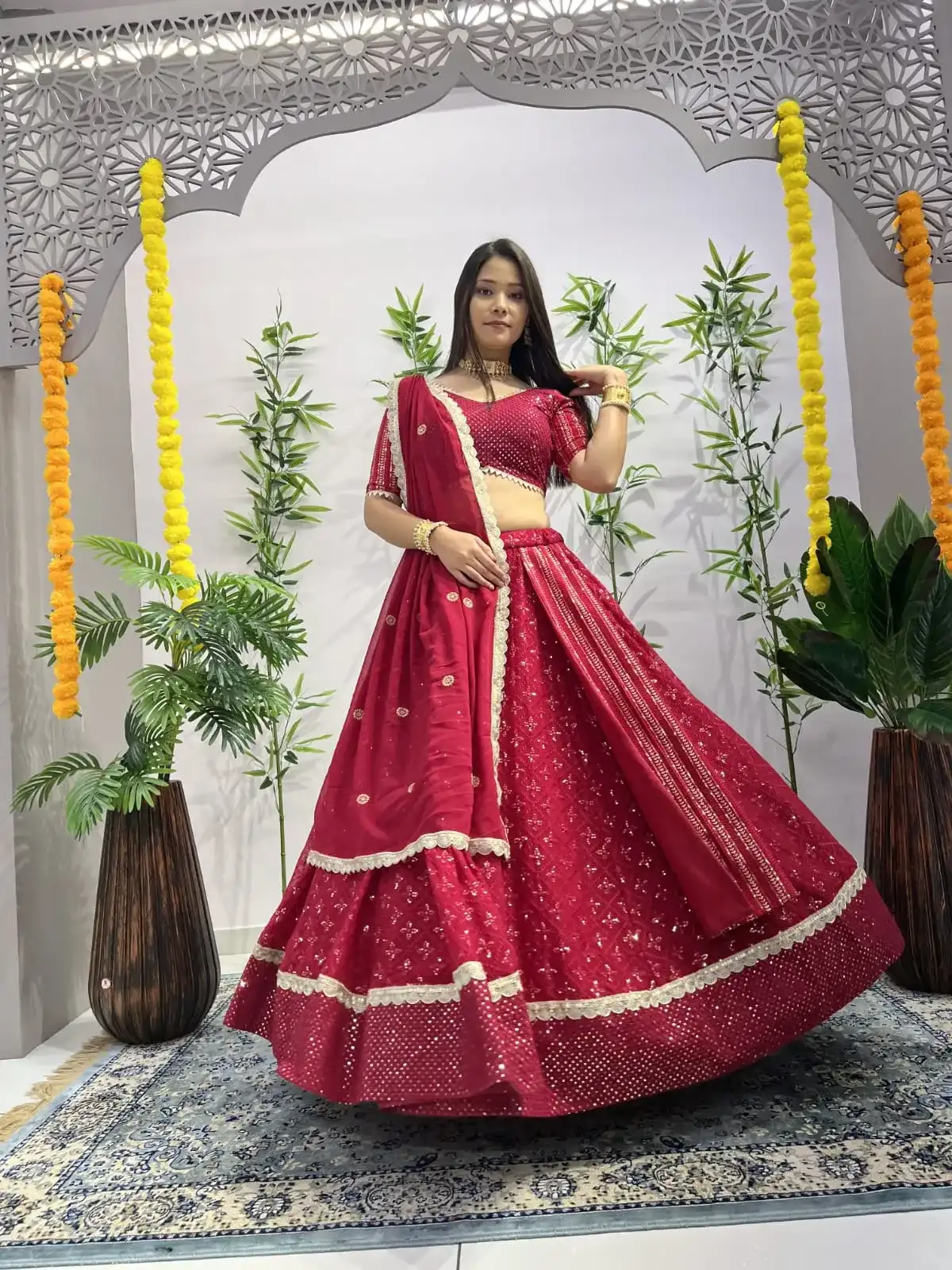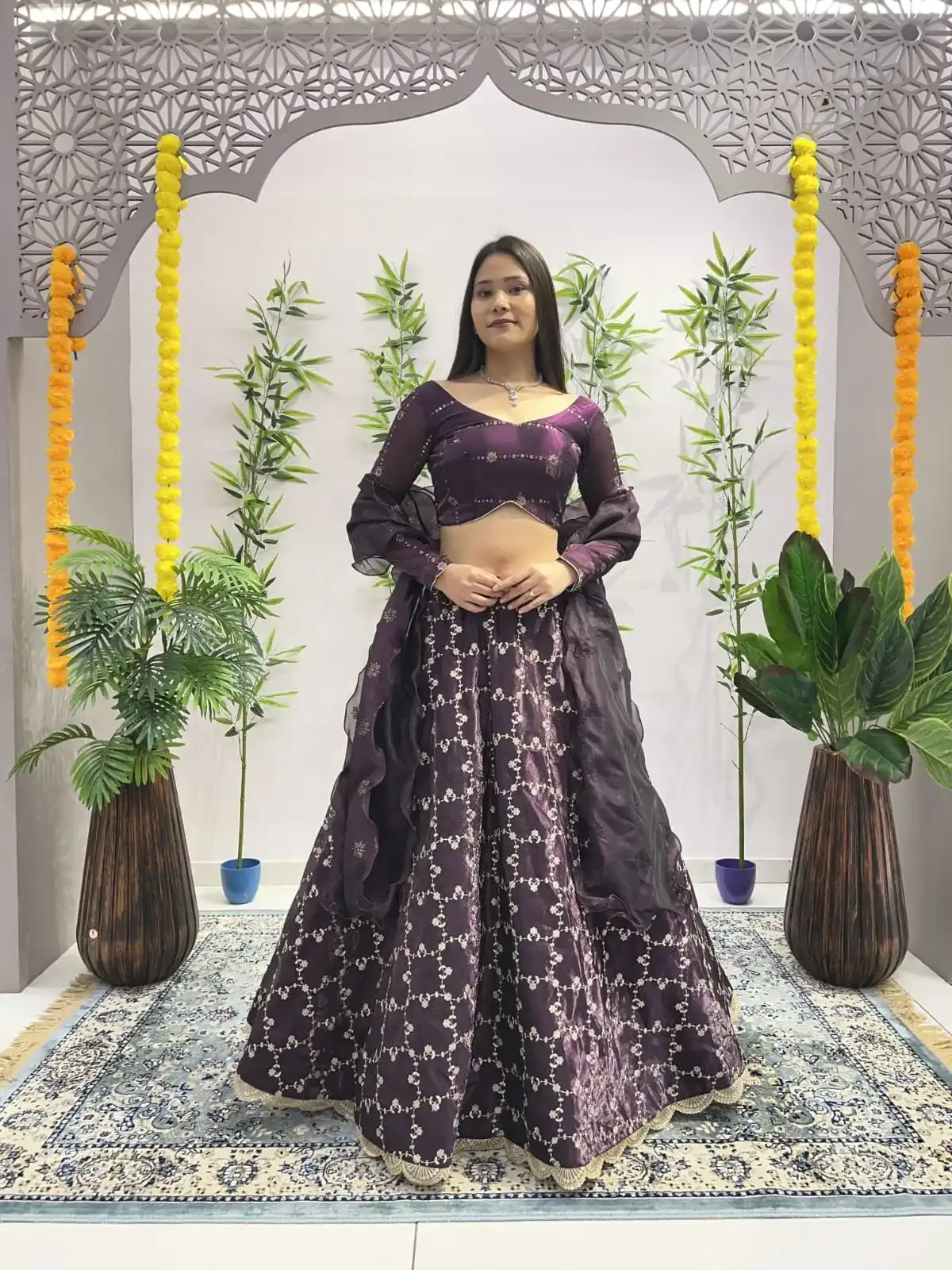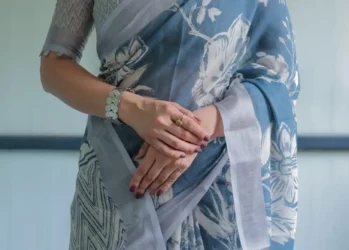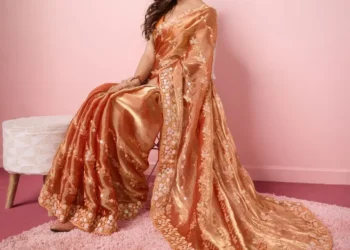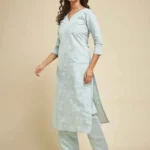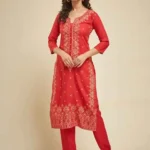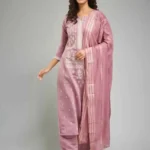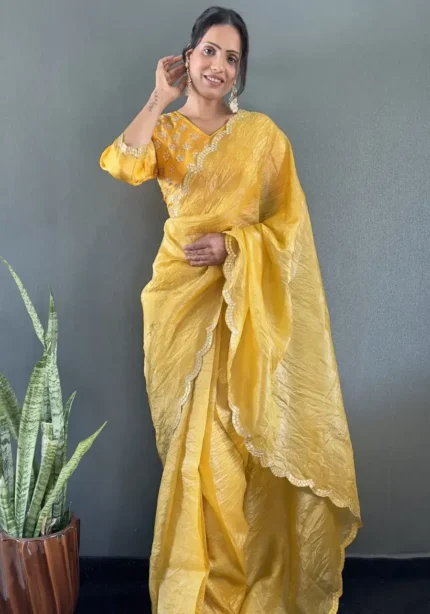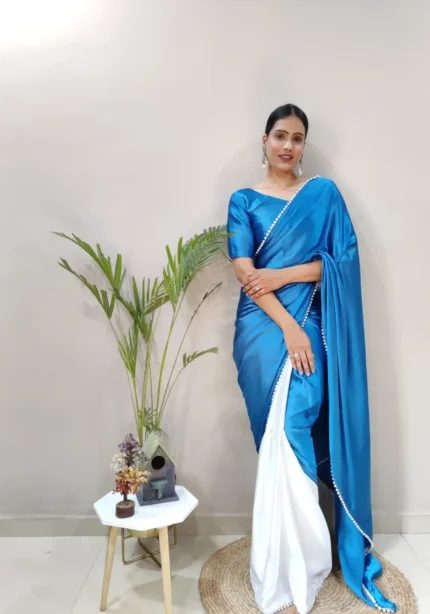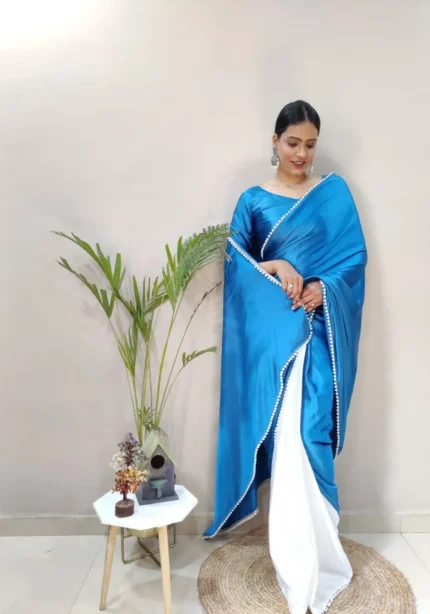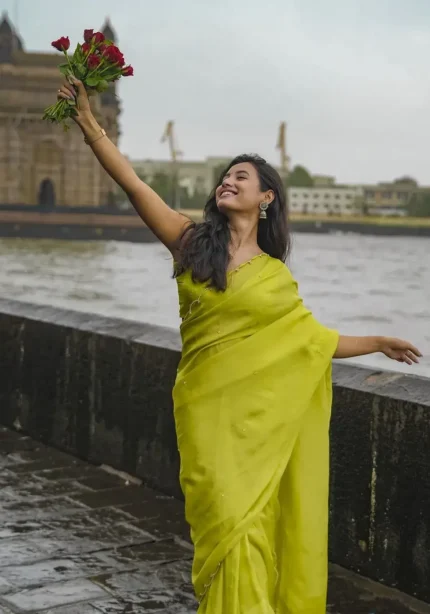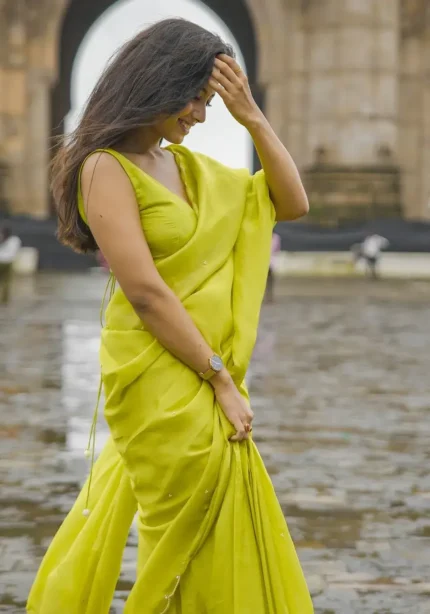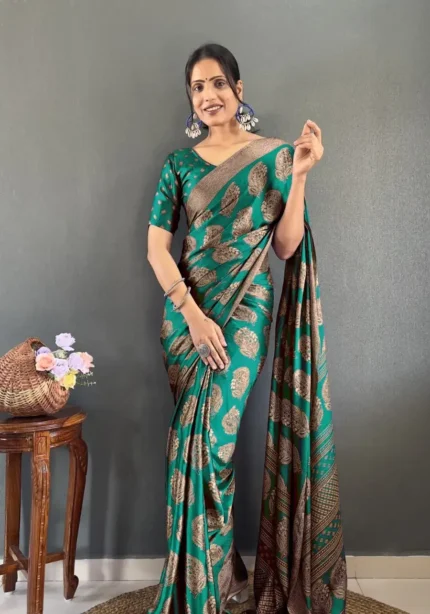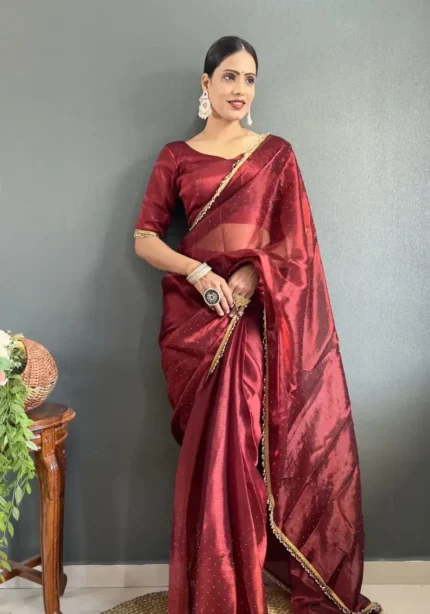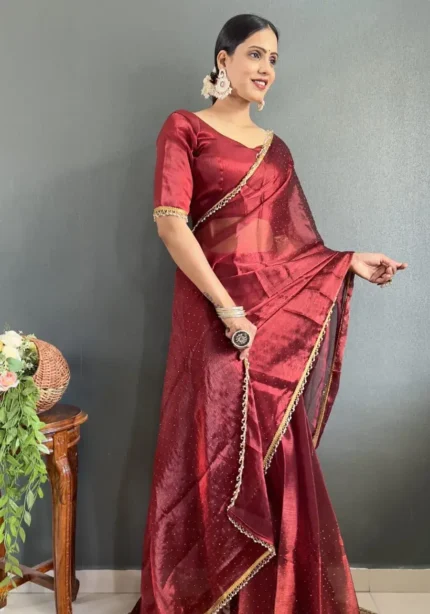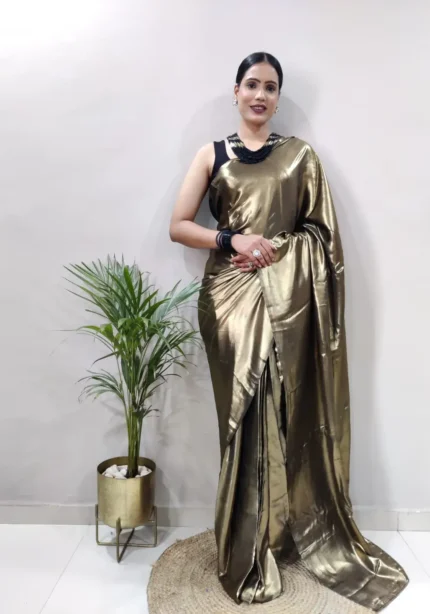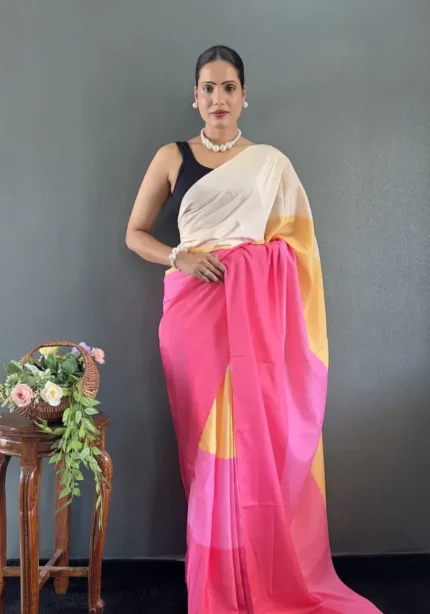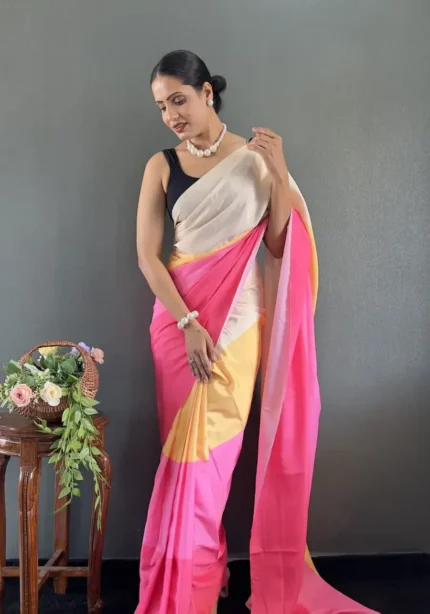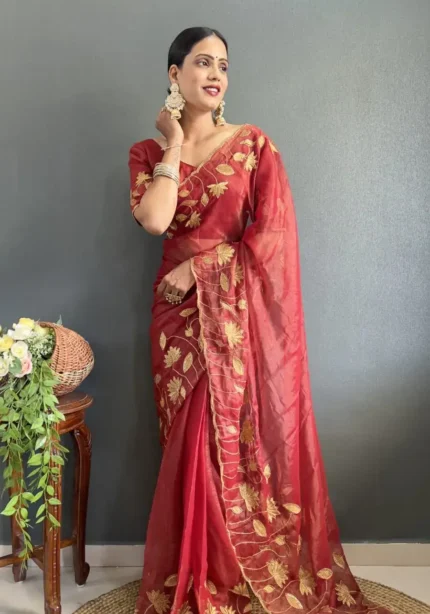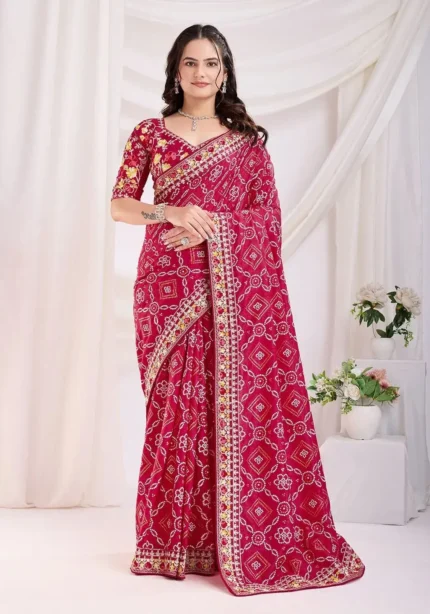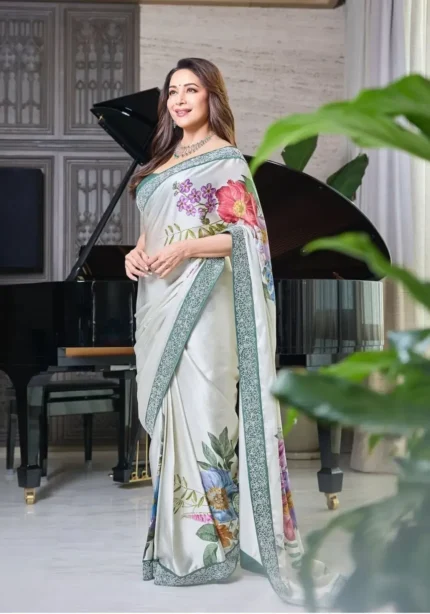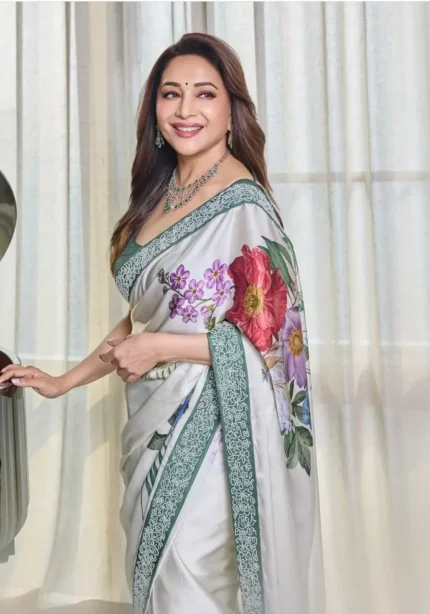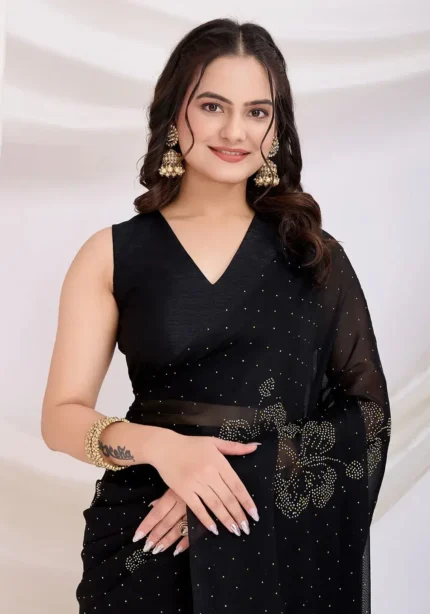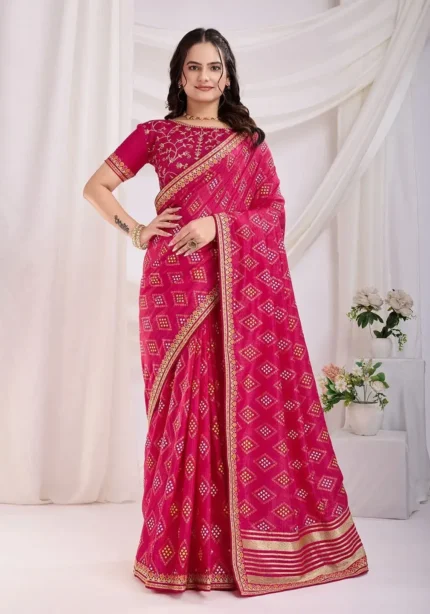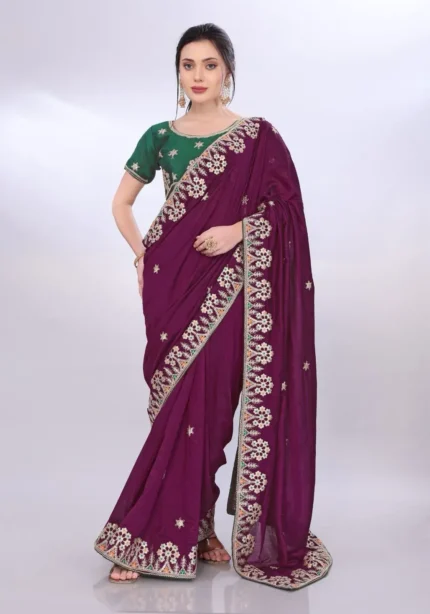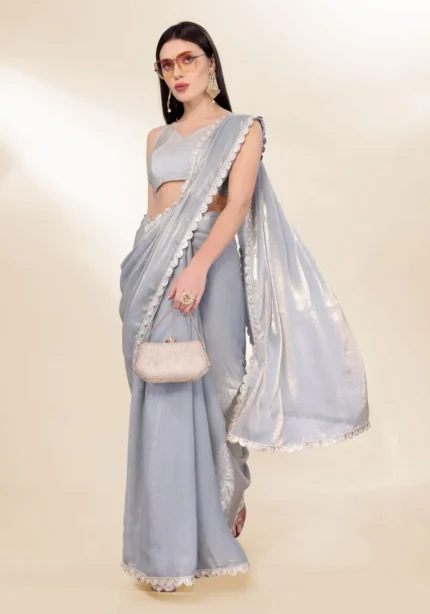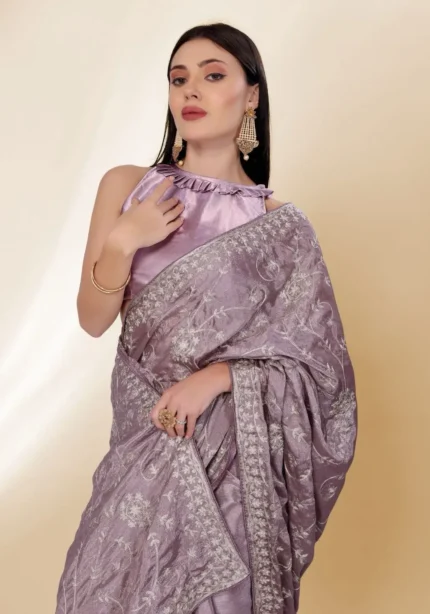- Categories
- Designs & Elements
New Arrivals
-
Heavy Embroidery Sequence Work Family Combo With Women Daughter Lehenga and Mens Kurta ₹1,499 – ₹5,399
-
Heavy Embroidery Sequence Ready Lace Work Georgette Shiny Party Wear Lehenga
₹5,599Original price was: ₹5,599.₹3,599Current price is: ₹3,599. -
Heavy Embroidery Zari Sequence Coding Lace Work Garlish Jimmy Choo Lehenga
₹5,599Original price was: ₹5,599.₹3,399Current price is: ₹3,399.
Browse Lehengas according to Fabrics or design elements like South Indian or Rajasthani lehenga cholis.
-
- Occasions
- By Colours
Shop Lehengas in your favorite colours at affordable prices and Free Shipping all over India.
-40%
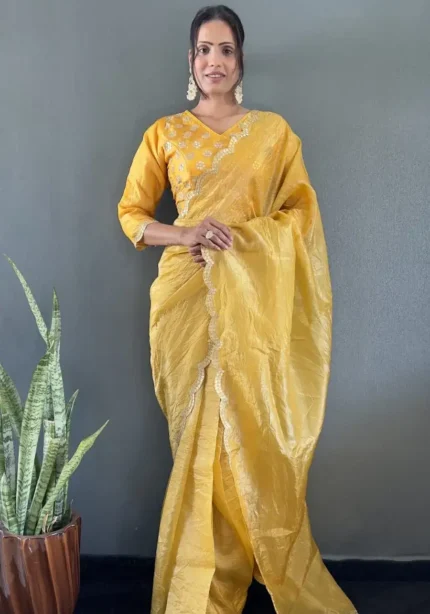
Select options
This product has multiple variants. The options may be chosen on the product page
Designer Gold Crush Silk Saree With Gota Work Blouse
Dual Color Japan Satin 1 Minute Saree With Moti Work Lace Border
Lime Yellow Pearl Hand Work Smooth Crepe Silk Saree With Cut Work Border
-48%
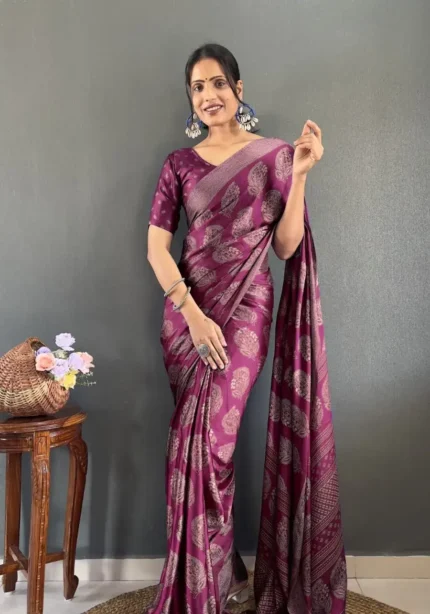
Select options
This product has multiple variants. The options may be chosen on the product page
Ready to Wear Premium Soft Moss Silk Printed Saree
Hot Red Swarovski Work Ready to Wear Saree
-40%
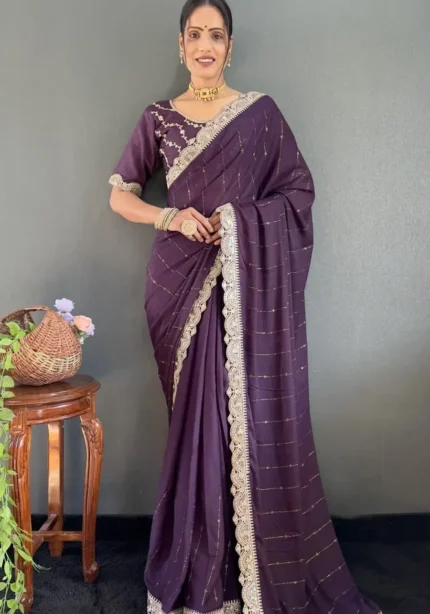
Select options
This product has multiple variants. The options may be chosen on the product page
Star Georgette Silk Heavy Lace Swarovski Work Pre Draped Saree
-41%
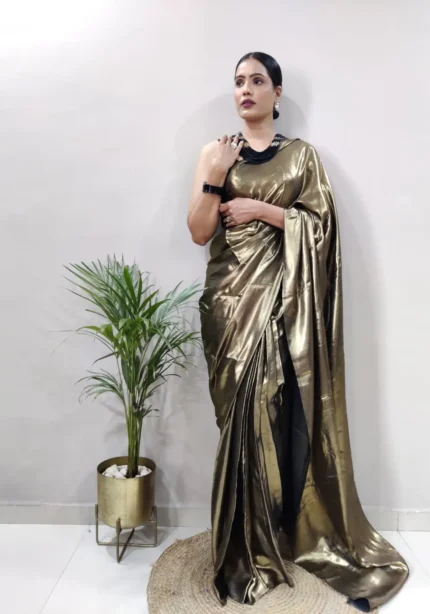
Select options
This product has multiple variants. The options may be chosen on the product page
Shimmer Satin Silk Party Wear Saree With Stitched Blouse
Digital Print Work Natural Silk Pre Stitched Sarees
-41%
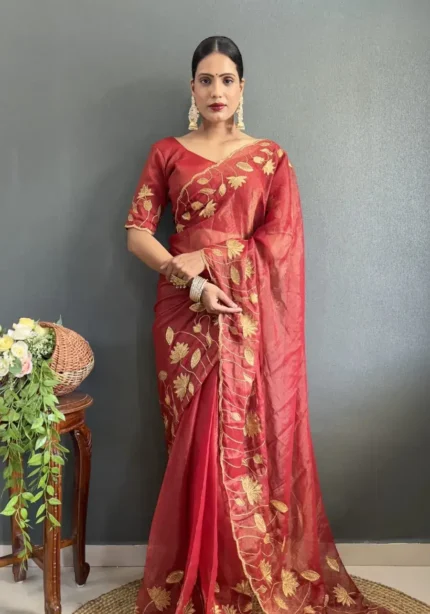
Select options
This product has multiple variants. The options may be chosen on the product page
Designer Gold Coin Embroidery Zari Stone Work 1 Minute Saree
-42%
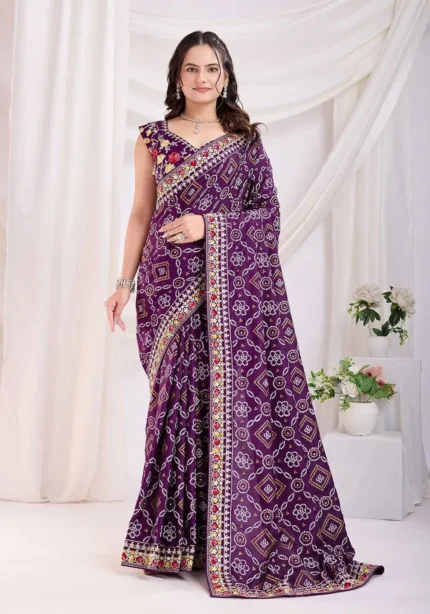
Select options
This product has multiple variants. The options may be chosen on the product page
Golden Foil Bandhani Printed Lace Embroidered Wedding Saree
Madhuri Dixit Inspired Cocktail Party Wear Satin Silk Saree
-46%
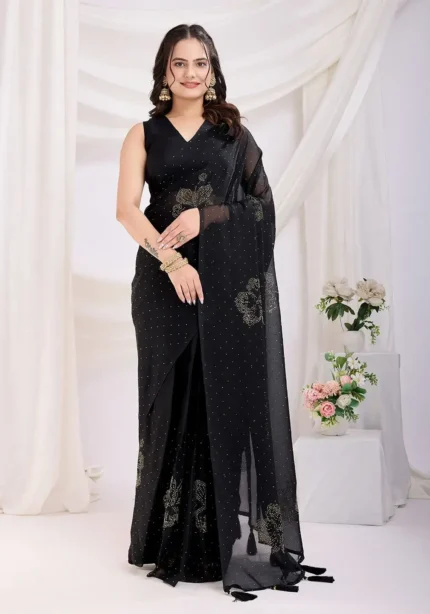
Select options
This product has multiple variants. The options may be chosen on the product page
Rangoli Silk Moti Worrk Ready to Wear Sarees
-52%
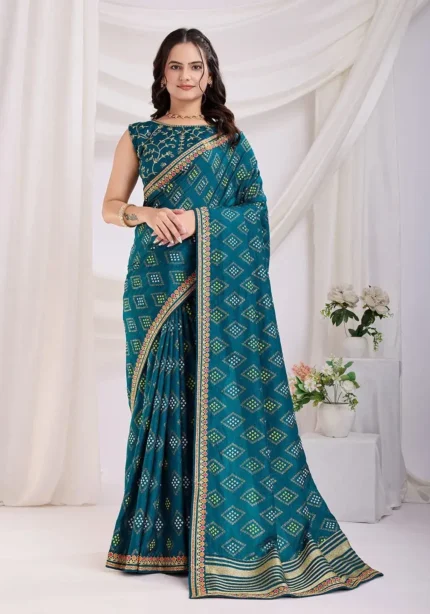
Select options
This product has multiple variants. The options may be chosen on the product page
Vichitra Silk Golden Foil Bandhani Printed Lace Embroidery Work Saree
-36%
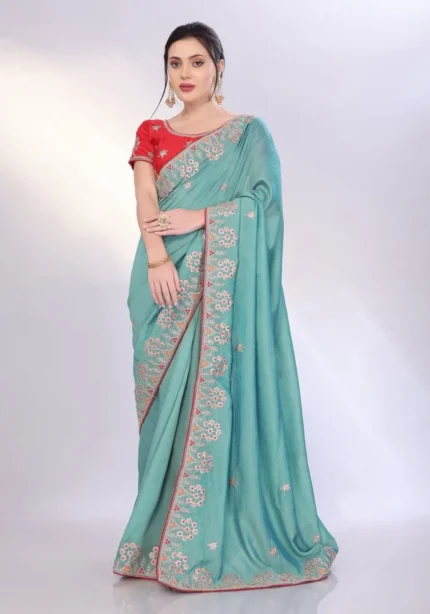
Select options
This product has multiple variants. The options may be chosen on the product page
Two Tone Soft Silk Embroidery With Constance Piping Border Work Saree
-41%
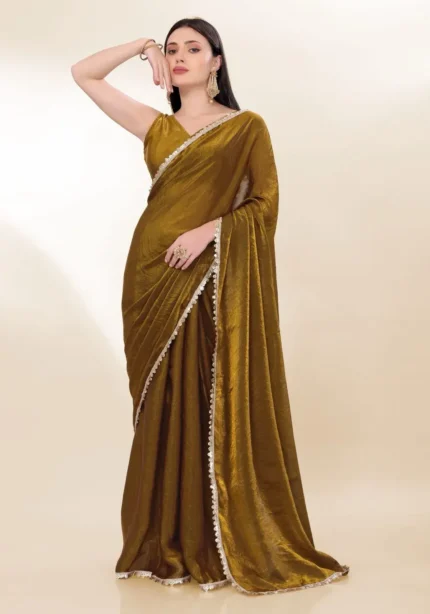
Select options
This product has multiple variants. The options may be chosen on the product page
Fendy Silk Cocktail Party Wear Saree With Fancy Lace Border
-52%
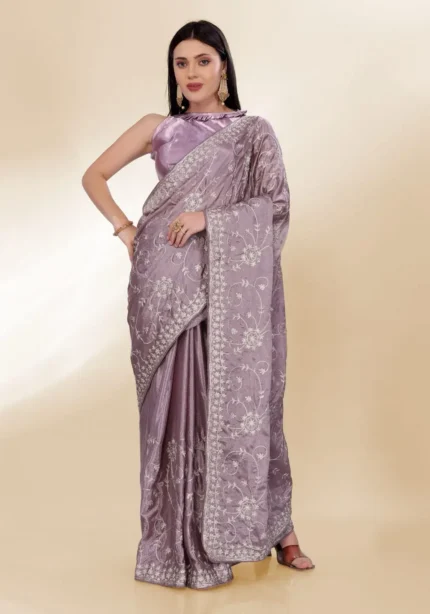
Select options
This product has multiple variants. The options may be chosen on the product page
Kashmiri Work Designer Party Wear Chinon Silk Saree
Rajwadi Saree: A Blend of Tradition and Elegance
The Rajwadi saree is a distinctive sign of grace and a cultural legacy among traditional Indian clothing. This gorgeous outfit captures the spirit of classic aesthetics and regal grace, and it’s more than simply a piece of apparel. It’s a celebration of the rich Indian sartorial past.
Fabric: The Foundation of Grace
The magic starts in the fabric of a Rajwadi saree. These sarees, which are usually made of exquisite silks, are renowned for their strength, lustre, and wonderfully soft feel. A Rajwadi saree’s silk is frequently acquired from the best silk mills, guaranteeing a quality that feels as magnificent as it seems. Although silk is the fabric most often associated with Rajwadi sarees, there are a variety of alternative fabric options that suit a range of preferences and events.
Here’s a list of some popular fabric choices for Rajwadi sarees:
Silk: The most elegant and traditional option, silk gives the saree a subtle shine and richness. Rajwadi sarees are frequently made from varieties of silk, such as Banarasi, Tussar, and raw silk.
- Georgette: This breezy, airy material is renowned for being comfortable and easy to drape. Georgette Rajwadi sarees are popular because of their ability to combine style and functionality.
- Chiffon: Chiffon gives the saree a delicate and elegant appearance. It is comparable to georgette but has a somewhat more sheer and airy texture.
- Velvet: Known for its lavish texture and depth, velvet is frequently used with other fabrics to give Rajwadi sarees a rich and opulent vibe.
- Net: Rajwadi sarees seem more modern when they are made with net cloth. It’s a popular option for weddings and other formal occasions because it’s frequently adorned with intricate embroidery and stones.
- Crepe: Crepe The light, breezy feel and crinkled texture of Rajwadi sarees are highly appreciated. They give classic patterns a contemporary spin while draped elegantly.
- Brocade: Typically woven with strands of gold or silver, this heavily beautiful fabric has an elaborate pattern. Brooch Rajwadi sarees are typically worn on formal occasions and are associated with grandeur.
- Organza: Distinguished by its crisp, translucent texture, organza lends an exquisite and distinctive look to the Rajwadi saree. It is lightweight and suitable for intricate needlework.
- Satin: Satin enhances the saree’s flair and refinement by adding a glossy, silky shine. It’s an excellent choice for those seeking a subtle glow.
- Cotton & Silk Combination: For those who like the luxury of silk combined with the cosiness of cotton, this combination is ideal. It is suitable for many times since it offers the best of both worlds
Colour Palette: A Royal Spectrum
The richness and magnificence of royal courts serve as the inspiration for the colour scheme of a Rajwadi saree. Every Rajwadi saree is a tribute to the rich colour traditions of India, ranging from rich reds and vivid yellows to delicate pastels. The Rajwadi saree is well-known for its vivid appeal and frequently has a unique colour pattern that makes it stand out. Rajwadi saree colour schemes are usually influenced by the majestic and sumptuous designs of royal Indian clothing. The following are some salient features of the colour schemes typical of Rajwadi sarees:
- Bold and Vibrant Hues: Vibrant and vivid hues like deep reds, royal blues, lush greens, and luminous yellows are frequently seen in Rajwadi sarees. These hues are especially popular for celebratory events like weddings as they capture the vibrant tradition of Indian clothing.
- Contrast Combinations: The use of clashing colors is one of Rajwadi sarees’ distinguishing characteristics. A vibrantly colored body paired with a pallu (the saree’s ornamental end) in a contrasting color might be this. A saree’s body, for instance, can be a rich red color while its border might be green or gold.
- Metallic Accents: Rajwadi sarees often include gold and silver into the fabric or utilize it in the stitching and decorations. These metallic colors heighten the saree’s overall grandeur by giving it an opulent, regal vibe.
- Pastel Shades: Although vibrant hues are the norm, Rajwadi sarees in gentle pastel tones are now becoming more and more well-liked. These provide a more muted but still attractive alternative. They include gentle greens, light blues, and delicate pinks.
- Dual-Tone Effects: Some Rajwadi sarees are made using shimmering or dual-tone materials, which seem to shift color depending on how they are seen. The saree gains a distinctive and captivating appeal from the impression produced by weaving two different colored threads together.
- Traditional Motifs and Patterns: The color patterns are frequently enhanced with traditional Indian motifs such geometric patterns, floral patterns, peacocks, and paisleys. These motifs’ colors are deliberately chosen to complement the saree’s primary color.
- Gradient and Ombre Effects: Modern Rajwadi saree patterns might have ombre or gradient effects, in which the color smoothly changes from one shade to another. The traditional saree gains a distinct beauty with its contemporary tweak.
Design and Embellishment: Craftsmanship at its Best
Each and every Rajwadi saree is an exquisite work of art. The designs range from trendy themes that suit the modern taste to historical patterns influenced by ancient Indian art. These intricate motifs are made by hand, sometimes taking weeks or even months to complete for a single saree by talented craftsmen. One characteristic that sets the Rajwadi saree apart is the embroidery, which uses threads made of gold and silver called “zari.” This elaborate technique highlights the fabric’s richness and depth while also adding an opulent gloss.
Versatility and Styling
Despite having a strong historical foundation, a Rajwadi saree is remarkably adaptable. It may be wrapped in a variety of ways, each highlighting a unique facet of its beauty. The Rajwadi saree is the ideal outfit for every occasion, including weddings, formal events, and joyful get-togethers. It gives off a regal appeal when worn with traditional jewels, but a more modern appearance is achieved when it is accessorised with fewer accessories.
Purchasing Rajwadi Sarees Online
Having this bit of tradition has become simpler with the introduction of technology. Many sites are now offering a large selection of Rajwadi sarees, as “Rajwadi saree online” is becoming a prominent search word. These online retailers provide a wide range of options in terms of styles, colours, and fabric quality in addition to the ease of buying from home.
Maintenance and Care
Maintaining the beauty and lifespan of a Rajwadi saree requires proper maintenance. These sarees need to be handled carefully since they are generally comprised of delicate fabrics and intricate needlework.
Here are some suggestions for caring for and maintaining Rajwadi sarees:
- Dry Cleaning: Rajwadi sarees frequently require dry cleaning, especially if they are silk or have intricate embroidery and decorations. This keeps the cloth’s color and texture intact in addition to maintaining the integrity of the stitching.
- Avoid Direct Sunlight: If dry cleaning is not an option, gently hand wash the Rajwadi saree and then hang it to dry. Direct sunshine might damage the colours. Dry it in a well-ventilated, shaded place.
- Gentle Washing: If you have to wash the saree at home, use a gentle detergent and refrain from giving it a rough brush or lathering. This is especially crucial for sarees with intricate needlework and fragile fabric.
- Ironing: When ironing, choose a low to medium heat setting. In order to prevent heat damage to the fabric and embroidery on the saree, it is safer to iron it using a pressing cloth placed between the iron and the saree.
- Storage: The Rajwadi saree should be wrapped in a soft material, ideally muslin, and kept in a cool, dry environment. This keeps moisture out of the saree and keeps it from becoming yellow over time.
FAQs
Q1. What is the significance of the fabric in a Rajwadi saree?
Ans: The fabric is the foundation of grace in a Rajwadi saree. Typically made of exquisite silks, it offers strength, lustre, and a wonderfully soft feel. Other fabric options, such as georgette, chiffon, velvet, net, crepe, brocade, organza, satin, and cotton-silk combinations, cater to various preferences and occasions.
Q2. What colours are commonly found in Rajwadi sarees?
Ans: Rajwadi sarees showcase a royal spectrum of colors inspired by the richness of royal courts. Vibrant hues like deep reds, royal blues, lush greens, and luminous yellows are popular. The color palette may include contrast combinations, metallic accents, pastel shades, dual-tone effects, traditional motifs, gradient, and ombre effects.
Q3. How are Rajwadi sarees designed and embellished?
Ans: Rajwadi sarees are exquisite works of art with designs ranging from trendy to historically inspired patterns. Handcrafted motifs, often taking weeks to complete, use threads made of gold and silver called “zari.” This intricate embroidery adds richness, depth, and an opulent gloss to the saree.
Q4. How versatile is the Rajwadi saree in terms of styling?
Ans: Despite its strong historical foundation, a Rajwadi saree is remarkably versatile. It can be styled in various ways to highlight different facets of its beauty, making it suitable for weddings, formal events, and joyful gatherings. Traditional jewelry enhances its regal appeal, while fewer accessories give it a more modern look.
Q5. Where can one purchase Rajwadi sarees online?
Ans: With the advent of technology, purchasing Rajwadi sarees has become easier. Numerous online sites offer a wide selection of styles, colors, and fabric qualities under the search term “Rajwadi saree online.” These platforms provide the convenience of shopping from home, catering to diverse preferences.
Shop Saree By Type: Narayana Pattu Sarees | Celebrity Sarees | Plain Cotton Saree | Printed Chiffon Saree
Shop Saree By Colour: Yellow Saree | Purple Colour Saree | Peach Color Saree | Multi Colour Saree | Pink Colour Saree | Sky Blue Colour Saree | Wine Color Saree | Black Colour Saree | Pastel Color Sarees
Popular Searches: Fancy Sarees | Saree with Belt | Traditional Sarees | Saree with Shrug | Stone Work Saree | Plain Saree with Printed Blouse | White Saree with Golden Border | Ready to Wear Sarees | Party Wear Sarees | Embroidery Sarees | Designer Sarees | Silk Saree Banarasi | Organza Saree | Party Wear Black Saree | Saree for Girls Farewell | Paper Silk Sarees | Office Wear Sarees










